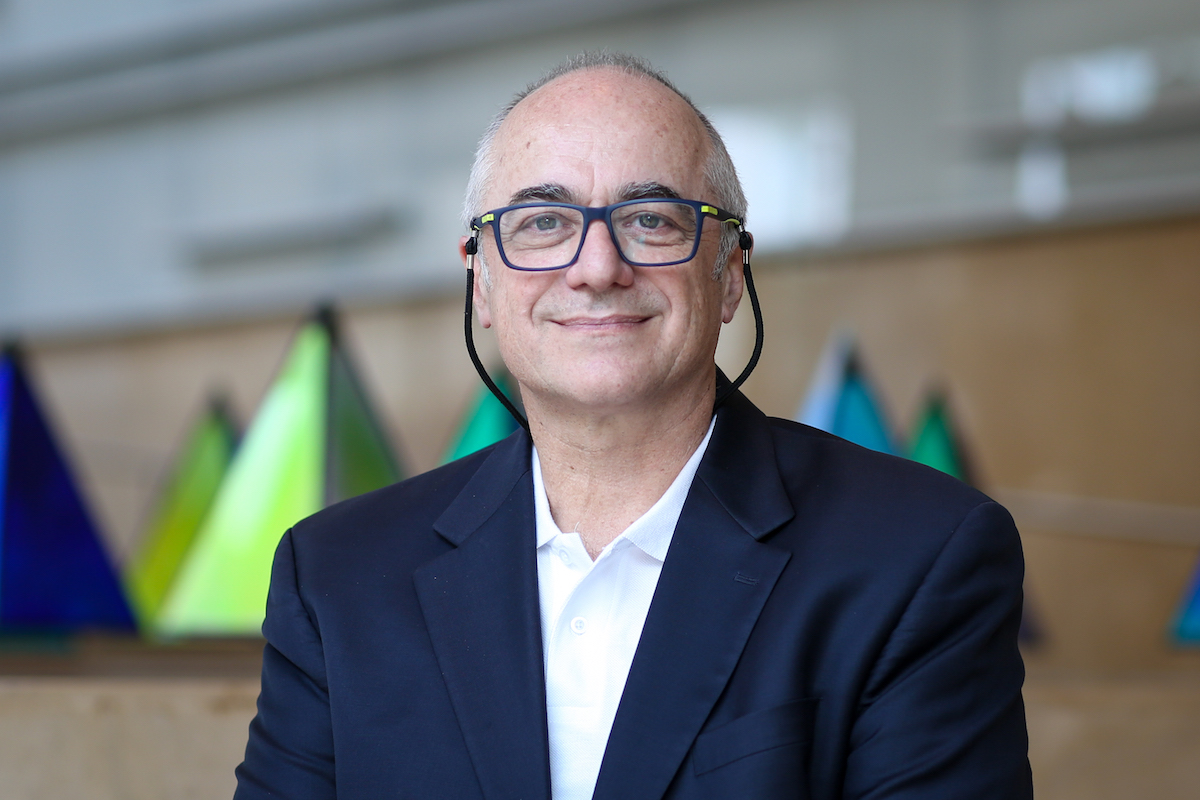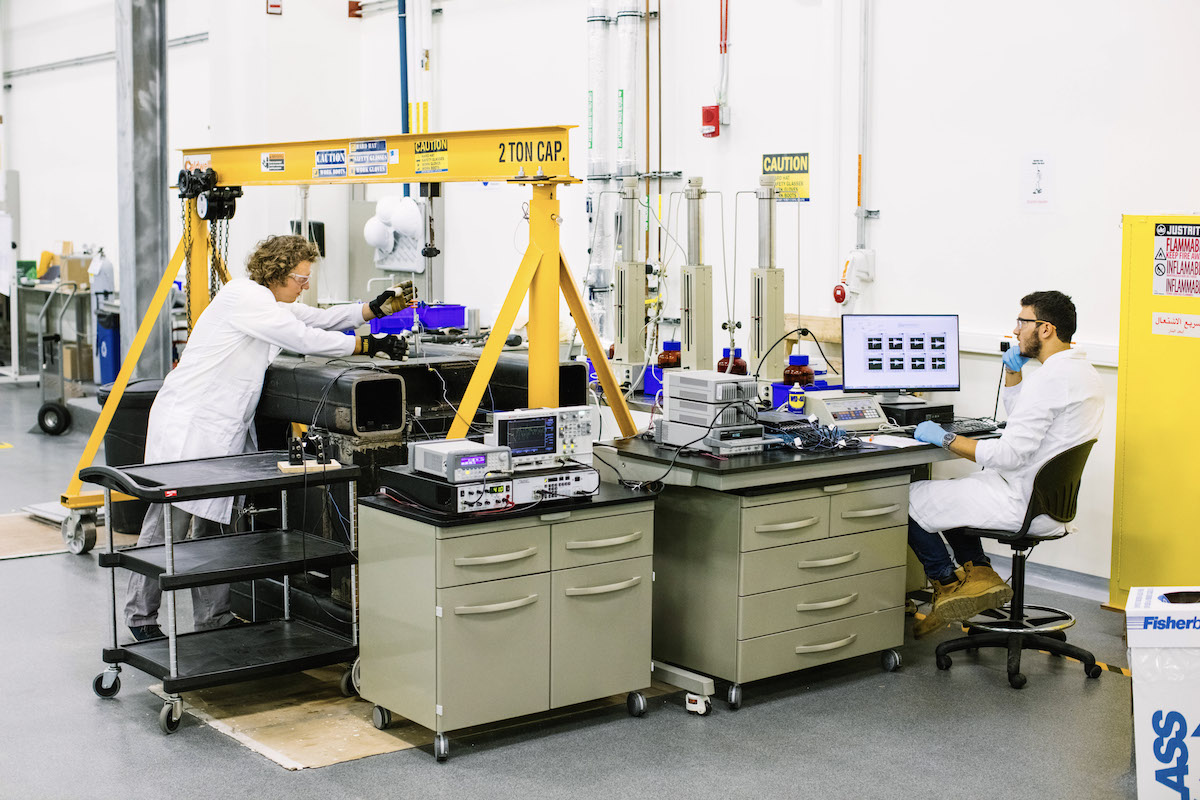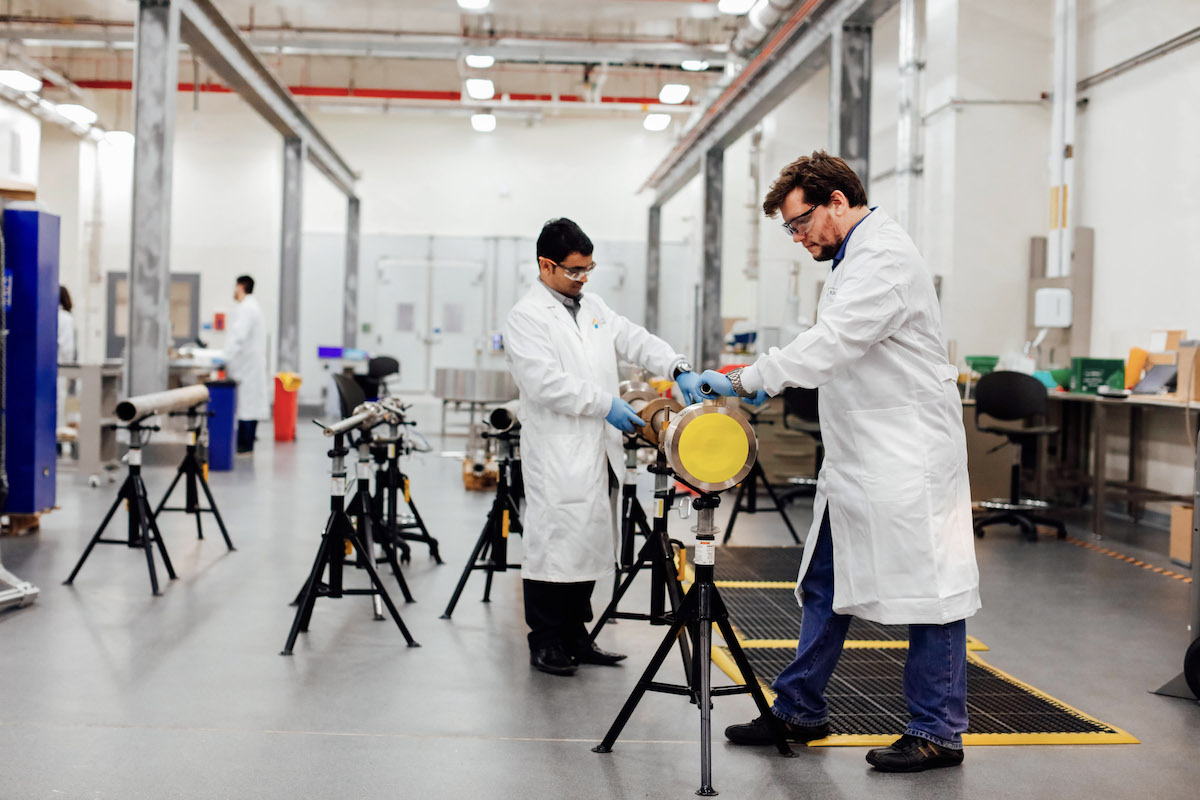Solving the global energy challenge

KAUST Professor J. Carlos Santamarina is director of the University's Energy Resources and Petroleum Engineering program and associate director of the Ali I. Al-Naimi Petroleum Engineering Research Center. Photo by Khulud Muath.
By Tanya Petersen, KAUST News
KAUST Professor J. Carlos Santamarina devotes all his efforts to solving one of this century's most critical issues: the global energy challenge. He examines how we will produce the energy we need to sustain modern society with a growing population while at the same time dramatically reducing CO2 emissions in order to minimize climate change.
It is estimated that the world's population will exceed 9 billion people in 2040—a 20 percent increase from today. Population growth will take place alongside a rising middle class in developing countries to produce a 40 percent increase in energy demand. To supply the additional energy, the world would need the equivalent of 300 new large nuclear or coal-fired power plants every year, an unachievable technological feat aggravated by the constraints of climate change and society's concerns over nuclear energy.
"Fossil fuels—petroleum, coal and natural gas—account for about 84 percent of the primary energy consumed worldwide," Santamarina said. "At current rates of consumption, there are enough reserves to last several generations, so today's energy challenge is not about reserves—at least not in the short term. It is about the large anticipated increase in demand in the next generation; the current dependency on fossil fuels; its impact on climate change; and the geographic mismatch between producers and consumers."
"Fuel-producing countries must be part of the climate change solution—we cannot avoid carbon capture and storage if we are going to meet carbon targets," he added.

Scientists work in the University's Ali I. Al-Naimi Petroleum Engineering Research Center. Professor J. Carlos Santamarina is associate director of the center. Photo by Anastasia Khrenova.
Engineering the future
Originally from Argentina, Santamarina completed a Ph.D. in civil engineering at Purdue University and arrived at KAUST in March 2015 after working at U.S. and Canadian universities for three decades.
"I came to KAUST to help build one of the most amazing academic institutions in the world," Santamarina noted.
As the director of the Energy Resources and Petroleum Engineering program and the associate director of the University's Ali I. Al-Naimi Petroleum Engineering Research Center, Santamarina's research focuses on the development of new geo-centered engineering solutions for the energy sector (both onshore and offshore).
Underlying these developments are studies exploring the scientific foundations of complex fluids in sediments and fractured rocks and subsurface processes using particle-level and pore-scale experiments in conjunction with numerical modeling techniques.
"A key difficulty is upscaling these observations to geological time and field scales. Processes that in the laboratory happen in seconds may involve thousands to millions of years in the field," he observed.

Researchers in the University's Ali I. Al-Naimi Petroleum Engineering Research Center (facilities pictured here) help tackle difficult energy issues facing the world today. Photo by Anastasia Khrenova.
Tackling complex global issues
Santamarina and the worldwide research community are pressed for real solutions with an impending sense of urgency.
"In the meantime, our main legacy in the short term is to help educate the next generation of academics, intellectuals and leaders who will confront these challenges at the prime of their professional careers," he stated. "These issues are complex and mutually dependent—energy, social equity, climate and sustainability and water and food."
"I feel fascinated, often overwhelmed and cautiously optimistic in the face of these challenges, but I always bet on the great minds and leaders we are educating today," Santamarina said.
Related stories:
- KAUST Associate Professor Hakan Bagci recognized by International Union of Radio Science
- KAUST professors named Fellows of The Combustion Institute
- KAUST Distinguished Professor Marc Genton awarded lectureship
-
KAUST Professor J. Carlos Santamarina and postdoctoral fellow Junghee Park receive 2019 Tarek Al-Kasabi Award for Excellence in Civil Engineering in Saudi Arabia

